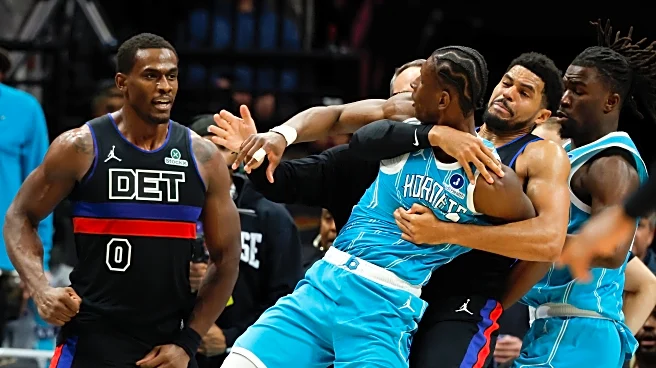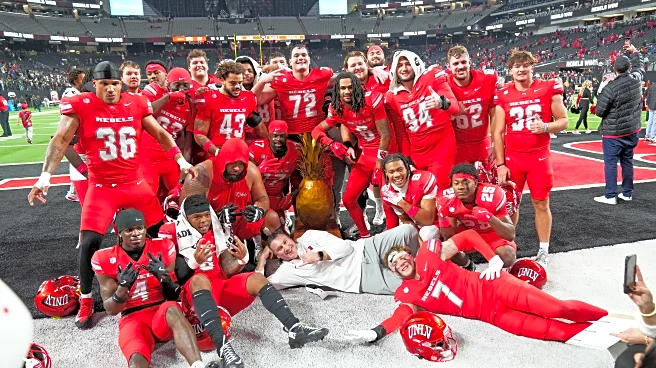What's Happening?
Louisville football coach Jeff Brohm faced criticism following the team's 28-14 victory over James Madison. Despite the win, Brohm's play calling during a crucial moment in the game was described as questionable. With Louisville leading 20-14 and possession of the ball, Brohm opted for three consecutive passing plays, which consumed only 59 seconds of the clock. This decision was criticized as the team could have run the ball to manage the clock better. The offensive line struggled throughout the game, but Louisville's defense managed to hold James Madison, allowing the Cardinals to secure the win. Brohm's decision-making was compared to historical coaching strategies, highlighting the unusual approach taken during the game.
Why It's Important?
The criticism of Jeff Brohm's play calling highlights the importance of strategic decision-making in football, particularly in close games. Effective clock management is crucial for maintaining a lead and securing a victory. Brohm's choices could have jeopardized the team's chances, emphasizing the need for coaches to balance aggressive play with prudent tactics. The incident underscores the pressure on coaches to make split-second decisions that can impact the outcome of a game. It also reflects on the broader implications for Louisville's season, as consistent strategic errors could affect their performance in future matches.
What's Next?
Louisville will need to address the issues highlighted in their offensive strategy to improve future performances. Coach Brohm may face increased scrutiny and pressure to refine his play calling, especially in critical game situations. The team will likely focus on strengthening their offensive line and ensuring better clock management in upcoming games. As the season progresses, adjustments in strategy and execution will be crucial for maintaining their competitive edge and achieving their goals.
Beyond the Headlines
The game against James Madison serves as a reminder of the unpredictable nature of sports and the role of luck in outcomes. Brohm's decisions, while criticized, ultimately did not prevent the team from winning, suggesting that sometimes unconventional strategies can still lead to success. This event may also influence how other teams approach similar situations, potentially leading to shifts in coaching philosophies and game management techniques.











